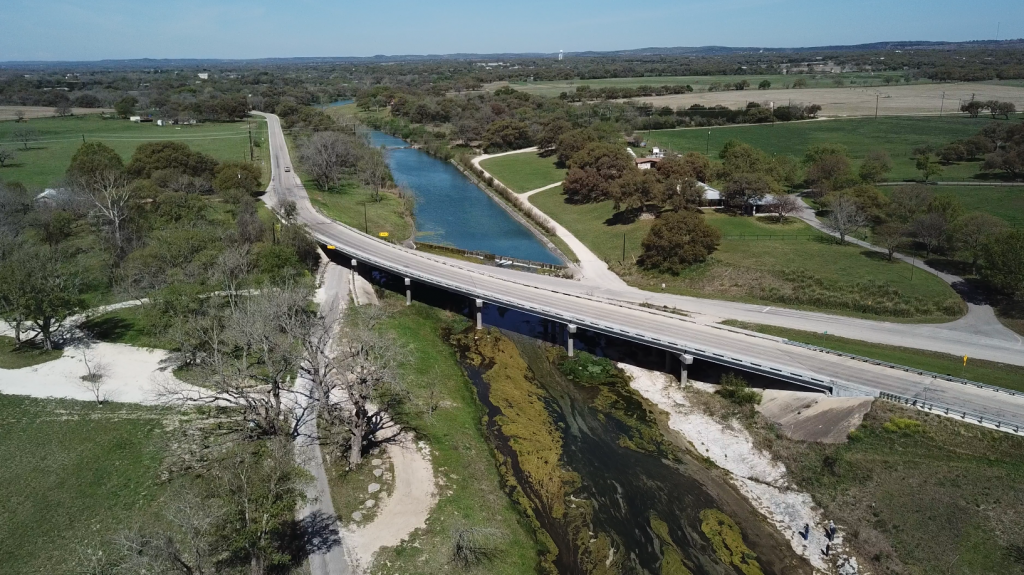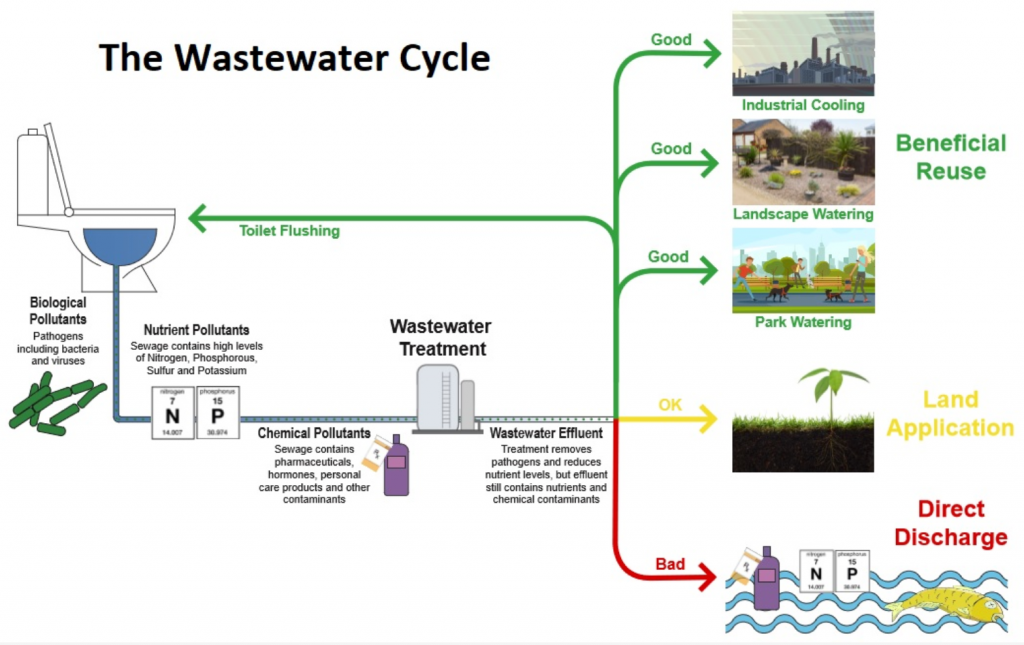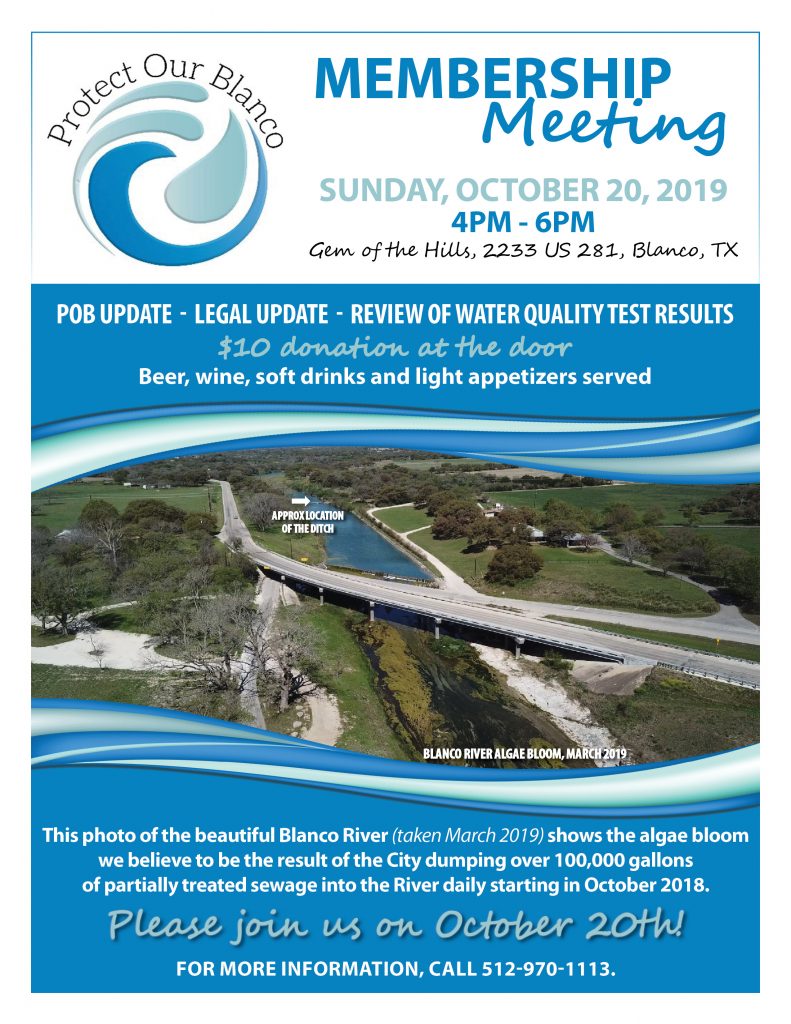The Wimberley Valley Watershed Association has recently filed a request for a contested case hearing for the City of Blanco’s wastewater permit (#WQ0010549002), which will allow the city to discharge an average of 1.6 million gallons of wastewater daily into the Blanco River. WVWA and our partner organization, Protect Our Blanco, are very concerned about the permit for two primary reasons:
- The City of Blanco is proposing to increase its discharge capacity from an average of 225,000 gallons per day to 1.6 million gallons of wastewater per day; a seven fold increase.
- The City is proposing to change its disposal of wastewater from land application to direct discharge, with no provisions or any potential for land application or irrigation of the effluent, as had been previously done.

Since the City of Blanco first announced their plans last year, WVWA and POB have continuously made an effort to work in partnership with the City to find an alternative solution to direct discharge into the Blanco River. However, the City of Blanco has refused our help and has instead chosen to wait for the TCEQ process to play out, regardless of what is in the best interest of the community.
In response to several public information requests submitted to the City of Blanco, we have received both monthly discharge logs and daily discharge logs that are kept by the City’s wastewater operator. Although the daily discharge data is not tracked consistently (an issue we have raised with the City), it indisputably shows that the City, since at least October 2018, has been discharging daily more than 100,000 gallons of wastewater effluent. Although there may be a day or two each month where the effluent discharge totals only 90,000 gallons, on many days, discharge exceeds 200,000 and even 300,000 gallons.
The direct discharge is consistent and demonstrates that the City is more or less averaging 100,000 gallons per day since October 2018, with the exception of November when they did irrigate some of their effluent. The City did not renew their irrigation lease and it expired in December 2018, meaning currently they do not have the option to irrigate. So while the City historically would go without discharging, that has not been the case for nearly one year.
Over the course of this timeframe, we have seen changes to the Blanco River downstream from the discharge point as early in the year as March. In order to monitor the water quality changes, Protect Our Blanco has successfully added water quality monitoring sites along the Blanco River upstream, downstream, and right at the discharge point. Our first testing from last month confirmed what we already knew–that the water quality in the Blanco River is excellent upstream of the City’s discharge, and that we should be concerned over the high nutrient levels in the City’s discharge. Nutrient overloads diminish water quality and contribute to eutrophication, which can cause increased algae growth.

The water quality of the Blanco River is intimately connected to the Upper and Middle Trinity Aquifer, and ultimately, the Edwards Aquifer. The future of the Blanco and Wimberley Valley’s quality of life, pristine environment, and economic stability are dependent upon the Blanco remaining a healthy stream, free of effluent. The WVWA hopes that the City of Blanco will really take the time to look at the science, the water quality monitoring reports, and listen to their community.
The water in the Hill Country ties all of us together, and it is ALL of our responsibility to ensure that it stays clean, clear, and flowing for generations to come. As residents, there are 3 things that can be done right now:
- Sign the Protect Our Blanco Petition
- Email the City of Blanco
- Donate to WVWA to help fund our contested case hearing
